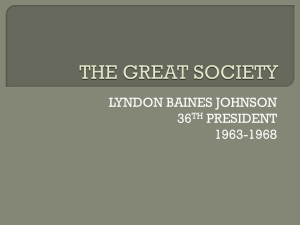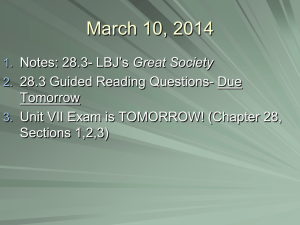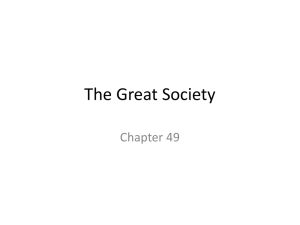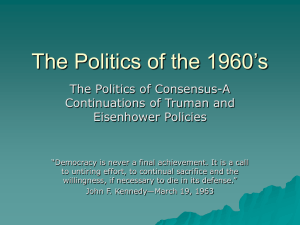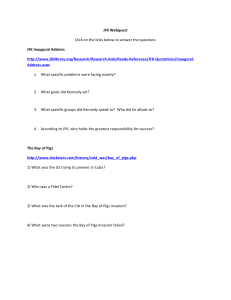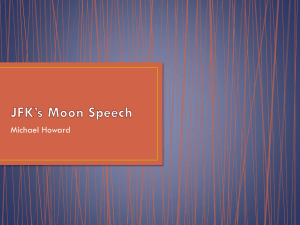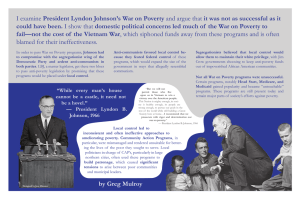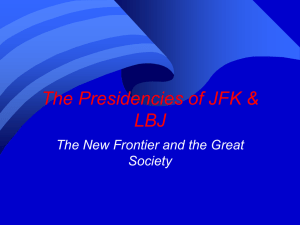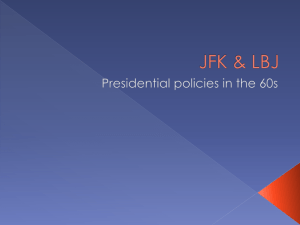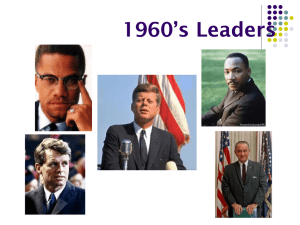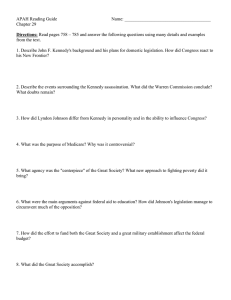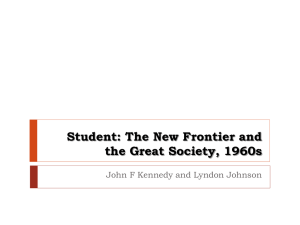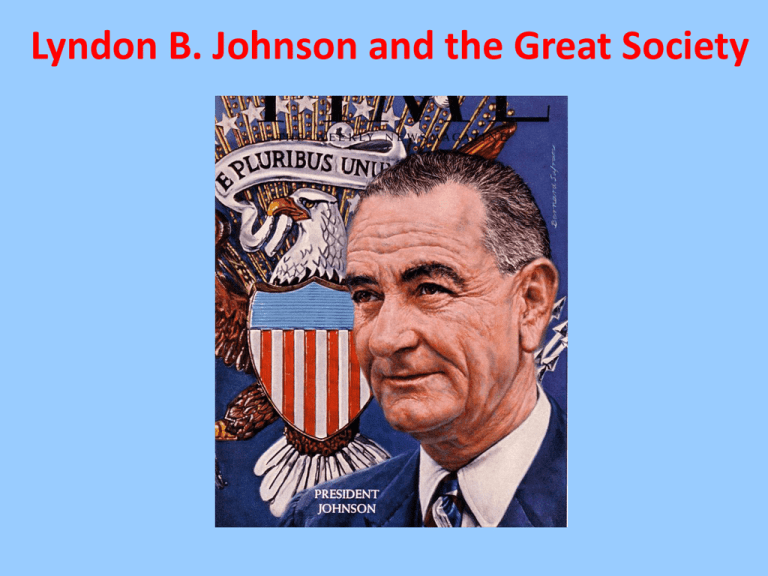
Lyndon B. Johnson and the Great Society
Following the assassination
of JFK, Johnson wanted to
further the domestic
advances made by JFK, as
well as meeting the
following three major
legislative goals:
• Stimulate the Economy
• Enact Civil Rights
Legislation
• Declare War on Poverty
Personality
• Large and intense with
none of Kennedy’s
good looks, polish, or
charm
• Hardworking and
ambitious
• Genuine desire to help
others
• Greater concern for
the poor and
underprivileged than
Kennedy
• Believed in an
expanded role for
government in making
Americans’ lives
better
Political
Experience
• School teacher in
Texas
• Served as Texas
Congressman
• Served as U.S.
Senator
• Served as majority
leader in the Senate
after one term as
senator
• By 1960, Johnson had
more influence in
Washington, D.C.,
than any other
Democrat.
Stimulate the Economy
• Tax Reduction Act of
1964.
– Cut taxes by $11.5
billion.
– Result: consumer
spending rose by $45
billion in four years
and unemployment
fell to under 4%.
War on Poverty
Economic Opportunity Act
• Funded several new antipoverty programs
• The Job Corps offered
work-training programs
for unemployed youth.
• VISTA was a domestic
version of the Peace
Corps.
• Other programs provided
education for adults, work
for unemployed parents,
and help to fight rural
poverty and assist
migrants.
Enact Civil Rights Legislation
Civil Rights Act of 1964
– Outlawed discrimination in public
facilities.
– Authorized the attorney general to sue
to desegregate public facilities and
schools.
– Stopped federal funds to states and
localities that failed to integrate.
– Forbade the unequal application of
voter registration standards.
– Forbade discrimination from
employers or labor unions on the
grounds of race, color, religion, sex,
physical disability, or age.

